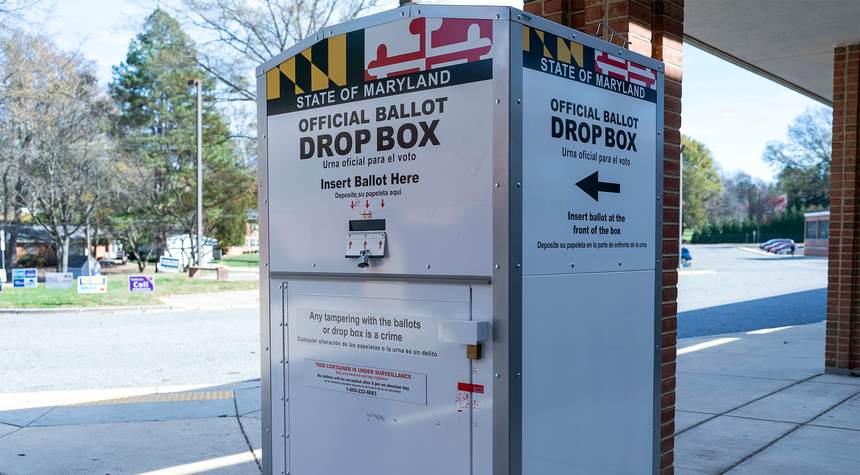
We’re told ever and over and over again that voter fraud doesn’t exist. We’re expected to take the Left’s claims at face value and join them in insisting, “There’s nothing to see here.”
If that’s the case, why has Florida Gov. Ron DeSantis’s Election Integrity unit netted more than two dozen fraudulent voters?
The latest incident comes to us from The Villages, where Robert Rivernider was arrested and charged with voter fraud this week. Just four days after his father’s death, Rivernider forged the man’s signature and mailed his ballot to the elections office. Fortunately, an alert clerk at the Board of Elections noticed the fraudulent ballot, which was not counted in the 2020 election.
I’ve written here before that detecting this type of voter fraud is almost impossible. Rivernider’s ballot arrived four days after the deadline, so it was not counted. But had the perpetrator mailed it on time, it may have fallen through the cracks and been counted. Fortunately, Rivernider had the decency to grieve his deceased father before committing his crime, and the ballot arrived late.
But what about the fraudulent ballots that were missed?
Florida is good about purging its voter rolls and prosecuting fraudsters—nearly a million names have been removed since DeSantis took office, and nearly 1,200 were referred for prosecution. DeSantis said in a statement last year, “Our new election crimes office has sprung into action to hold individuals accountable for voter fraud… If you commit an elections crime, you will be prosecuted to the fullest extent of the law.”
But other states resist voter-role maintenance and fraud investigations and even try to hide what they’re up to, violating public records laws in the process.
The Public Interest Legal Foundation (PILF) has sued in several states to gain access to Electronic Registration Information Center (ERIC) data reports concerning possible deceased voters on the states’ rolls. ERIC is an interstate compact that shares voter roll data to check for deceased voters. It’s an important program, but it’s mired in secrecy. ERIC’s membership agreement stipulates that the reports cannot be shared with the public. PILF says the secrecy agreement violates the National Voter Registration Act of 1993, “which gives the public a right to inspect voter rolls and voter list maintenance documents.”
In the most recent action, the U.S. District Court in Colorado denied a motion by Secretary of State Jena Griswold to dismiss PILF’s suit.
The judge in the case ruled that the lawsuit could continue, stating that “NVRA’s disclosure provision should be construed in favor of broad disclosure.”
PILF President J. Christian Adams, who is also a PJ Media contributor, said, “Colorado’s Secretary of State Jena Griswold should stop fighting transparency and hand over these ERIC reports. Other ERIC member states should take notice that under federal law the public has a right to inspect ERIC reports.”
Alabama, Florida, Iowa, Louisiana, Missouri, Ohio, West Virginia, Virginia, and Texas recently left ERIC, citing concerns about partisanship and transparency. They were also unhappy about an ERIC requirement that the states in the compact send voter registration information to all eligible but unregistered adults.
While it’s great that red states like Florida and Ohio are wise to ERIC’s lack of transparency and are diligent about maintaining their voter roles, what about the blue states that don’t really want to purge their voter rolls? In those states—some of which want to send out a ballot to every man, woman, child, dog, and dead person—it can be much easier to cheat.
In the example above with the Florida voter who cast a ballot for his dead father, there’s literally nothing that can stop him from committing voter fraud in a state that isn’t diligent about removing dead voters from their rolls.
That’s what we’re up against in 2024. I can think of few things that are as important as voter integrity and clean voter rolls in the lead-up to the election.
https://pjmedia.com/columns/paula-bolyard/2023/10/06/i-see-dead-people-voting-n1732624
No comments:
Post a Comment